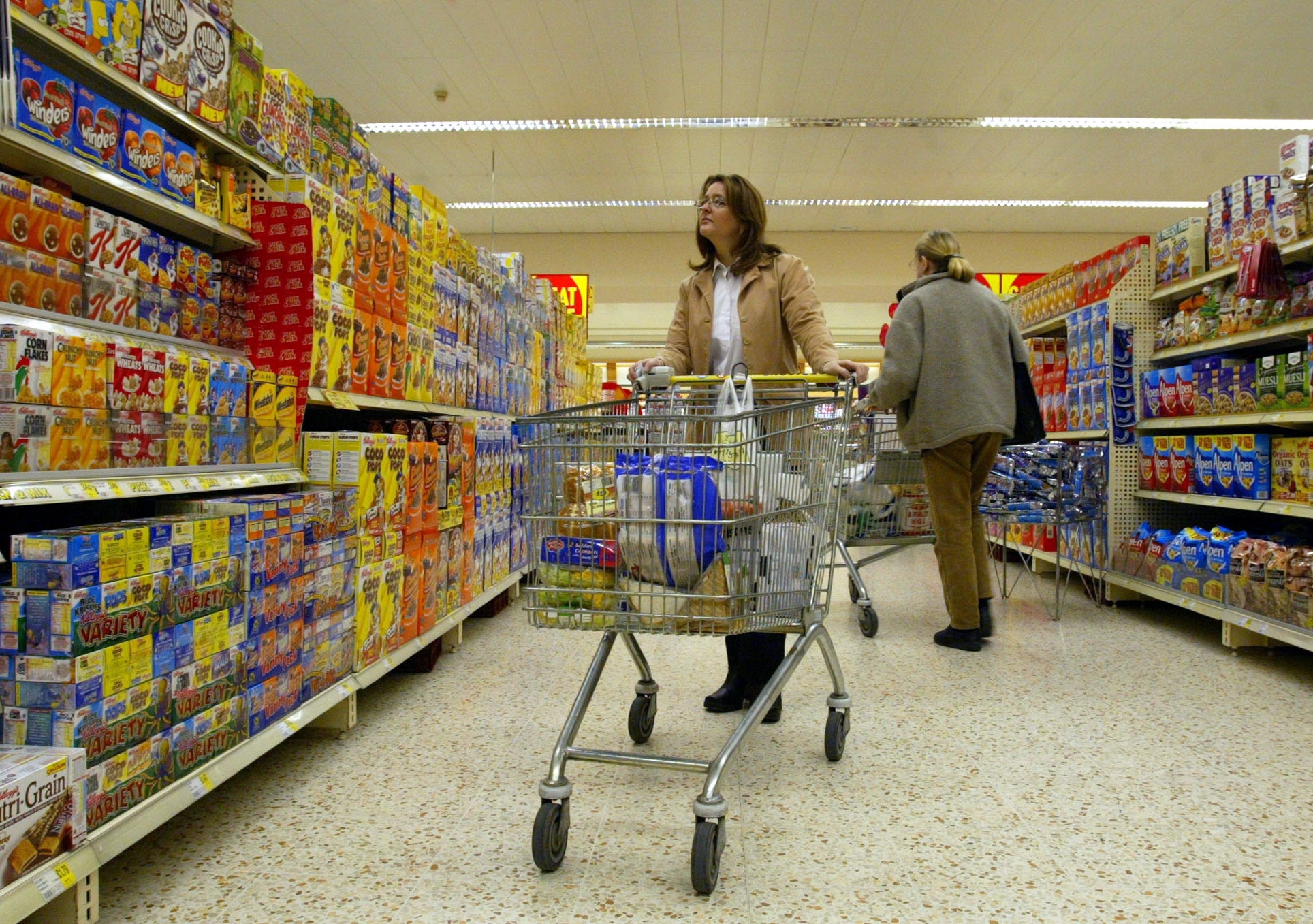Retail sales drop in May as cost-of-living crisis sees shoppers rein in spending
The Office for National Statistics said retail sales fell 0.5% last month after a 1.6% plunge across food stores.

Your support helps us to tell the story
From reproductive rights to climate change to Big Tech, The Independent is on the ground when the story is developing. Whether it's investigating the financials of Elon Musk's pro-Trump PAC or producing our latest documentary, 'The A Word', which shines a light on the American women fighting for reproductive rights, we know how important it is to parse out the facts from the messaging.
At such a critical moment in US history, we need reporters on the ground. Your donation allows us to keep sending journalists to speak to both sides of the story.
The Independent is trusted by Americans across the entire political spectrum. And unlike many other quality news outlets, we choose not to lock Americans out of our reporting and analysis with paywalls. We believe quality journalism should be available to everyone, paid for by those who can afford it.
Your support makes all the difference.Retail sales fell in May as households reined in their grocery spending amid belt-tightening due to the cost-of-living crisis, according to official figures.
The Office for National Statistics (ONS) said the drop in retail sales over the month came after sales tumbled 1.6% across food stores.
The ONS also revised down sales growth in April, from the 1.4% previous estimation to an increase of 0.4%.
It found that sales in supermarkets dropped 1.5% over May, with a 2.2% drop in specialist shops such as butchers and bakers.
But the biggest decline in spending was seen on alcohol and tobacco, with sales down 4%.
Feedback from supermarkets suggested customers were spending less on their food shop because of the rising cost of living
The data likewise showed a pull back in spending on household goods and in department stores, with sales dropping 2.3% and 1.1% respectively, as shoppers worry about affordability.
It comes amid mounting signs the cost-of-living crisis is beginning to take its toll on the economy.
Consumer confidence this month hit its lowest level since records began in 1974, according to GfK data also out on Friday.
And supermarket giant Asda said earlier this week that some shoppers were asking cashiers to stop scanning items when the till total hits £30 to cut costs.
Inflation has now reached a fresh 40-year high of 9.1% and there are fears a large drop in spending by consumers may tip the UK into a recession.
Heather Bovill, deputy director for surveys and economic indicators at the ONS, said: “Feedback from supermarkets suggested customers were spending less on their food shop because of the rising cost of living.
“More workers returning to the office may have contributed to increased fuel sales this month while shoppers buying outfits for summer holidays helped boost clothing sales.”
“These rises were offset by falls for household goods and department stores, with retailers in these areas reporting consumer reluctance to spend due to affordability worries and higher prices.”
The ONS data revealed the impact of rising prices for shoppers since the pandemic, with sales by value up 13% in May compared with February 2020 before Covid struck.
Kantar warned earlier this week that shoppers will see their annual grocery bill jump by £380 to £4,960 in 2022 as inflation sends prices rising across the board.
Helen Dickinson, chief executive of the British Retail Consortium, said: “Many customers are buying down, particularly with food, choosing value-range items where they might previously have bought premium goods.
“High-value items, such as furniture and white goods, were also impacted as shoppers reconsidered major purchases during this difficult time.”
She said rocketing inflation means “both retailers and their customers are in for hard times ahead”.
The ONS said non-food stores sales were unchanged in May, with a 2.2% increase in clothing sales offset by a fall in household goods.
The data revealed that fuel sales jumped by 1.1% in May, driven by an increase of workers returning to offices.
The proportion of online sales slipped back to 26.6% from 27.1% in April as shoppers increasingly returned to stores, but the ONS said this remained “substantially higher than before the pandemic”.
Martin Beck, chief economic adviser to the EY Item Club, said that, with sales falling in five of the last seven months, the retail sector is “effectively already in recession and the wider consumer sector is likely to experience a marked slowdown this year”.